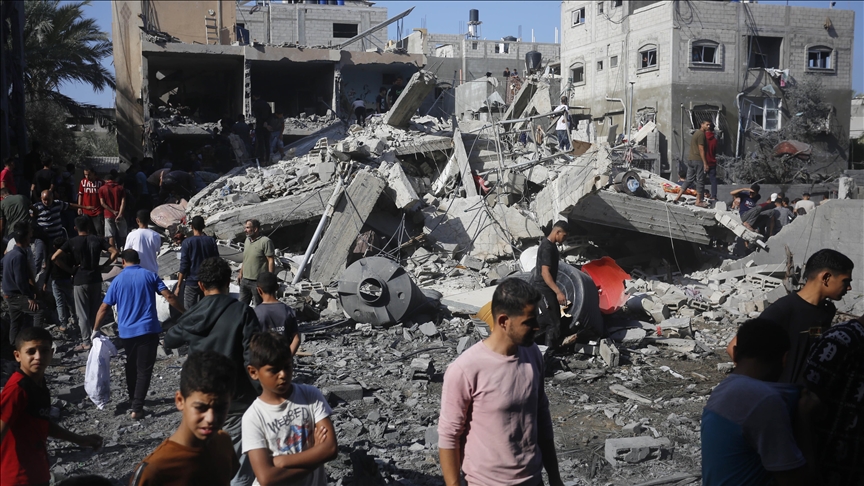NEW YORK
The United Nations Development Program (UNDP) released a report Thursday revealing that 50% of the housing in Gaza was destroyed in one month as a result of the Israeli war on the Strip.
Abdallah Al Dardari, Assistant Secretary-General and Director of the United Nations Development Programme Regional Bureau for Arab States, and Rula Dashti, Executive Secretary of the Economic and Social Commission for Western Asia (ESCWA), held a press conference in which they briefed the media on the findings of the report, which was issued jointly by the two organizations and titled Gaza War: Expected Socioeconomic Impacts on the State of Palestine: Preliminary estimation until 5 November 2023.
Al-Dardari said 50% of the housing in Gaza was destroyed in one month.
He pointed out by way of comparison that Syria lost this percentage of housing in its fourth year of war.
In turn, Dashti said, “the destruction in Gaza has reached an unprecedented level.”
She pointed out that 96% of Gazans who cannot access basic services are suffering from multidimensional poverty.
Dashti stressed the need for the international community to come together to establish lasting peace.
The report indicated that Palestinian economic activity was exposed to a severe shock as a result of the complete siege on Gaza, the destruction of capital, forced displacement, and restrictions imposed on the movement of people and goods in the West Bank.
According to the report, around 390,000 job opportunities have been lost since the start of the war, while the poverty rate is expected to rise sharply, ranging between 20% and 45%.
GDP losses could range between 4% and 12% in 2023 and between 4% and 9% in 2024 compared to pre-war estimates depending on how long the war will last.
The Human Development Index (HDI) is expected to record a sharp decline, which would set the State of Palestine back between 11 and 16 years.
“Economic recovery in Gaza following a cease-fire will not be immediate,” the report said, noting “the large-scale destruction and uncertain access to resources, including materials and equipment, owing to the siege on Gaza.”
In its final remarks, the report said that “in addition to the catastrophic loss of life, the current Gaza war and the full siege by Israel continue to undermine the human security of the Palestinian people and have plunged the Gazan population into unprecedented deprivation and multidimensional poverty, leading to a full-fledged humanitarian catastrophe.”
“The people of Gaza are not only facing the physical destruction of homes and critical infrastructure but are also grappling with a loss of access to essential services, including healthcare, water, energy, food, education, employment, income, remittances and basic rights and freedoms.”
The report called for “$1.2 billion to meet the immediate needs of 2.7 million people (the entire population of Gaza and 500,000 people in the West Bank) by the end of 2023.”
In the longer run, “post-war reconstruction and recovery efforts for Gaza should learn from past mistakes and should not be restricted to dealing with the immediate humanitarian, social and economic needs resulting from wars and military escalations,” said the report, which called for handling the post-war phase differently.

